Day 578 of 1000
This is the fifth in a series of posts on the benefits of skipping high school and going straight to college. The introductory post and index to all the other posts in the series is here. You can see their undergraduate results and post-graduate (PhD) chase here. I try to keep the results updated as they occur.
[Previous post in series]
[Next post in series]
When we first started to think about college for the kids, we thought of a small, Christian, liberal arts college not too far from us. We went to visit them and, based on test scores and a few other things, we were told Kelly could get a scholarship that would bring her tuition down to about the level of what she would pay if she went to North Carolina State University. We thought that sounded great, but after further investigation, found there were some issues. In addition to some hidden costs, we found that there were really no small, liberal arts colleges of any stripe that could provide the breadth of a large, national research university in the areas of hard science the kids wanted to study.
So our next option was to look at the local, national research universities in area. We are fortunate in that there are three of those within driving distance of our house: North Carolina State University, Duke University, and University of North Carolina. Duke was out of our price range, so that left NCSU and UNC. Christian wanted to be able to take engineering classes and UNC’s only engineering program is Biomedical Engineering which it does jointly with NCSU, so NCSU became the obvious choice.
We considered trying to put the kids directly into NCSU, but it seemed pretty overwhelming to drop a 14 year old and a 16 year old straight out of homeschool into a huge state university. We are confident they could have handled it academically, but there were a lot of social challenges that made us decide to try the local community college for a semester or two before making that leap. Our local community college, Wake Tech, is only five miles from our house, so we ran down there one afternoon to figure out what we had to do.
At first, we wanted to try to enroll them as dual enrolled students attending Wake Tech part time while we continued with homeschool classes. We quickly found out that was not going to work so well. Dual enrolled students had a very limited selection of classes they could take. We talked to other homeschoolers who had dual enrolled and they said it was actually pretty difficult for a homeschooled kid to get a dual enrollment class because, even if the school policy did not state it, the government school kids got first pick for what was available. In addition, if a student under 16 years old is dual enrolled, he has to have a parent sitting with him in all the classes he takes. This would have precluded Christian from taking any classes. Fully enrolled students under age 16 do not need such a chaperone.
All this lead us to the decision to enroll the kids full time. This benefited us greatly in the following ways:
- The Wake Tech tuition cost was roughly half that of NCSU.
- There was no chaperone requirement for students under age 16.
- All of the classes for which the kids met the prerequisites were available to the kids.
- Fully enrolled students register for classes before dual-enrolled classes so the problem of classes filling up before the kids got to them was diminshed.
- Wake Tech was a seven minute drive from the house while NCSU is a 30 minute drive.
- Professional teachers as opposed to research professors and grad students taught the classes at the community college1
- The kids were continually told that Wake Tech STEM graduates performed better at NCSU than students who spent all for years at NCSU2
- The kids made good friends that transfered with them to NCSU and professors with whom they remain in contact
One of the big worries for both of the kids was about how accepting graduate schools would be of their attendance at a community college. Now that they are both actively talking to tier one graduate schools, we have found those fears to be unfounded.
- Purely anecdotal, but certainly true in my experience. The kids had truely stellar teachers in Math, Biology, and Physics. This was somewhat mitigated by really bad English and Art Appreciation instructors, but they also had excellent liberal arts class instructors in History, Speech, New Testament, and Literature.
- Purely anecdotal.
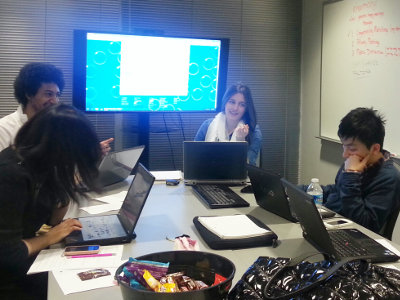 Some of Kelly’s Chinese friends invited her to participate on their team in the intercollegiate statistical competition called Datafest. Kelly jumped at the chance. They are having a great time. Most of the teams tried to give themselves edgy names like Regression Session and I Regress, but Kelly’s team has, by far the best name, LoveData, picked by the Chinese girls. They asked her if it was OK and, of course, she told them it was fabulous.
Some of Kelly’s Chinese friends invited her to participate on their team in the intercollegiate statistical competition called Datafest. Kelly jumped at the chance. They are having a great time. Most of the teams tried to give themselves edgy names like Regression Session and I Regress, but Kelly’s team has, by far the best name, LoveData, picked by the Chinese girls. They asked her if it was OK and, of course, she told them it was fabulous.
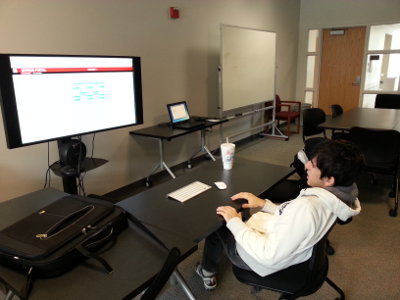 Lorena flies to Monterrey to see Grandpa Lauro and Grandma Conchita. I was thinking I would finally get a chance to drive the Fiesta, but Kelly needs to practice her driving for when she goes off to her internship this summer, so I got stuck again in the drivers seat.
Lorena flies to Monterrey to see Grandpa Lauro and Grandma Conchita. I was thinking I would finally get a chance to drive the Fiesta, but Kelly needs to practice her driving for when she goes off to her internship this summer, so I got stuck again in the drivers seat. It is only just my opinion, but I honestly believe Mexican pizza feature the worst combination of ingredients of an pizza I have ever eaten. I have been married to a Mexican woman for over twenty years. She is the best cook I have ever met. She does great Chinese food, great Greek food, great Korean food–you name it, she does it and she does it extremely well.
It is only just my opinion, but I honestly believe Mexican pizza feature the worst combination of ingredients of an pizza I have ever eaten. I have been married to a Mexican woman for over twenty years. She is the best cook I have ever met. She does great Chinese food, great Greek food, great Korean food–you name it, she does it and she does it extremely well.
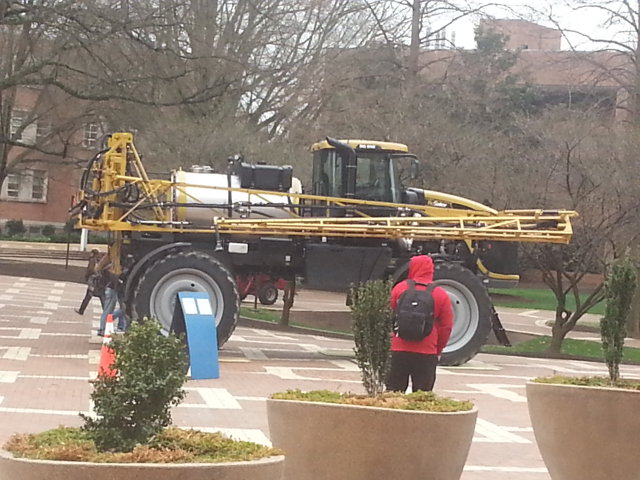
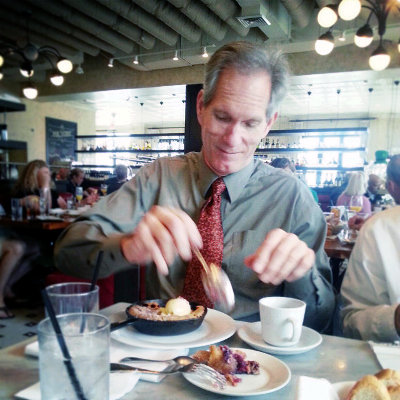 Tom is a really nice guy, but that is part of the problem. I had my whole family convinced (and it’s true) that Wendy’s is truly fine dining. We made the really big mistake of leaving our kids with Tom and his wife, Sharon, for a weekend. They wrecked 15 years of hard work by taking them to a gourmet pizza house and some snooty sushi place. Now the whole family is wrecked.
Tom is a really nice guy, but that is part of the problem. I had my whole family convinced (and it’s true) that Wendy’s is truly fine dining. We made the really big mistake of leaving our kids with Tom and his wife, Sharon, for a weekend. They wrecked 15 years of hard work by taking them to a gourmet pizza house and some snooty sushi place. Now the whole family is wrecked.
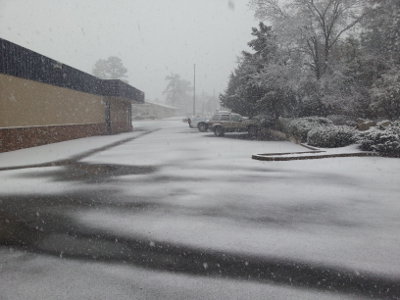 It is snowing hard and the wind is blowing here in Prescott. It sounds like there will be a good amount of accumulation tonight and nasty driving conditions through the weekend. From the National Weather Service:
It is snowing hard and the wind is blowing here in Prescott. It sounds like there will be a good amount of accumulation tonight and nasty driving conditions through the weekend. From the National Weather Service: